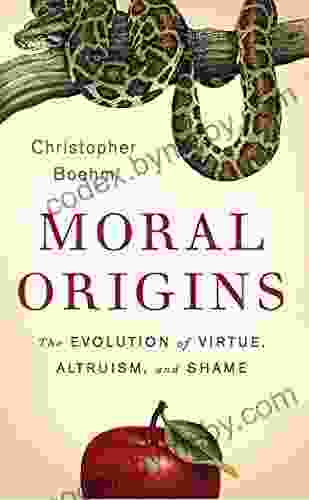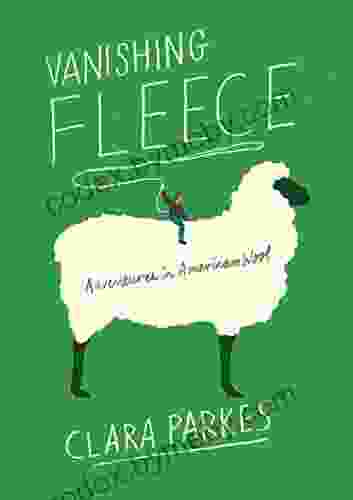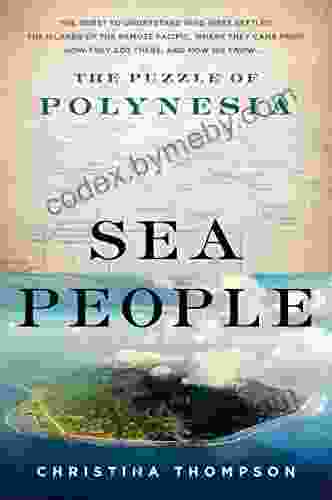The Evolution of Virtue: Altruism and Shame - Unraveling the Enigma of Human Morality

In the tapestry of human existence, morality occupies a central and enduring place. From the earliest societies to the complex civilizations of today, moral codes have guided our actions, shaping our interactions, and fostering cooperation within groups. But where do these moral principles come from, and how have they evolved over time? The answers lie at the fascinating intersection of biology, psychology, and social anthropology.
4.1 out of 5
| Language | : | English |
| File size | : | 1426 KB |
| Text-to-Speech | : | Enabled |
| Screen Reader | : | Supported |
| Enhanced typesetting | : | Enabled |
| Word Wise | : | Enabled |
| Print length | : | 434 pages |
The Evolutionary Roots of Morality
Theories on the evolution of morality have long been a subject of debate and scientific inquiry. One prominent school of thought suggests that morality has evolved as an adaptive trait that enhances survival and reproductive success in social species. Altruistic behavior, where individuals sacrifice their own well-being for the benefit of others, can strengthen group cohesion and increase the chances of survival in harsh environments.
Shame, on the other hand, has been proposed as a powerful mechanism for maintaining social Free Download and ensuring conformity to group norms. Individuals who violate moral codes may experience feelings of guilt and disapproval, which can motivate them to adjust their behavior and conform to societal expectations.
The Case for Altruism
The concept of altruism has been a source of intrigue for scientists and philosophers alike. While it may seem counterintuitive for individuals to prioritize the well-being of others over their own, evolutionary theory provides several compelling explanations for altruistic behavior.
Kin selection theory suggests that altruism may have evolved as a way to increase the survival chances of closely related individuals who share genetic material. By helping relatives, individuals indirectly contribute to the preservation of their own genes.
Reciprocal altruism, another theory, proposes that altruism arises from a long-term exchange of favors between individuals. By helping others, individuals create opportunities for future reciprocal benefits, fostering cooperation and mutual support within social groups.
Shame and the Enforcement of Morality
Shame plays a crucial role in shaping moral behavior and maintaining social cohesion. Individuals who violate moral codes often experience intense feelings of guilt and disapproval, which can motivate them to correct their behavior and conform to societal norms.
The neurobiology of shame reveals the brain's involvement in processing and regulating these emotions. Studies indicate that the anterior insula, a brain region associated with self-awareness and empathy, is activated when individuals experience feelings of shame.
Cultural variations in shame responses further emphasize the social and environmental factors that influence the expression of this emotion. In some cultures, shame is a potent force that governs behavior, while in others, it may be less prevalent or have different triggers.
The Interplay of Altruism and Shame
Altruism and shame are not mutually exclusive concepts. Rather, they exist in a dynamic interplay that shapes moral behavior.
Individuals may exhibit altruistic behavior out of a genuine desire to help others, but the prospect of shame or social disapproval can also serve as a motivator. Conversely, shame can act as a deterrent for antisocial or immoral behavior, prompting individuals to conform to societal expectations.
This complex relationship between altruism and shame highlights the nuanced and multifaceted nature of human morality.
'The Evolution of Virtue: Altruism and Shame' provides a captivating exploration of the evolutionary foundations of human morality. It delves into the intricate interplay between altruism and shame, revealing how these emotions have shaped moral behavior throughout human history.
Professor Matt Ridley, a renowned evolutionary biologist and author of the book, argues that morality is not simply a set of arbitrary rules but rather an evolved system that has played a vital role in our survival and success as a species.
By understanding the evolutionary origins of morality, we gain valuable insights into our own human nature and the challenges we face in fostering ethical and compassionate societies. 'The Evolution of Virtue: Altruism and Shame' is a must-read for anyone interested in the fascinating intersection of biology, psychology, and the human experience.
4.1 out of 5
| Language | : | English |
| File size | : | 1426 KB |
| Text-to-Speech | : | Enabled |
| Screen Reader | : | Supported |
| Enhanced typesetting | : | Enabled |
| Word Wise | : | Enabled |
| Print length | : | 434 pages |
Do you want to contribute by writing guest posts on this blog?
Please contact us and send us a resume of previous articles that you have written.
 Book
Book Novel
Novel Page
Page Chapter
Chapter Text
Text Story
Story Genre
Genre Reader
Reader Library
Library Paperback
Paperback E-book
E-book Magazine
Magazine Newspaper
Newspaper Paragraph
Paragraph Sentence
Sentence Bookmark
Bookmark Shelf
Shelf Glossary
Glossary Bibliography
Bibliography Foreword
Foreword Preface
Preface Synopsis
Synopsis Annotation
Annotation Footnote
Footnote Manuscript
Manuscript Scroll
Scroll Codex
Codex Tome
Tome Bestseller
Bestseller Classics
Classics Library card
Library card Narrative
Narrative Biography
Biography Autobiography
Autobiography Memoir
Memoir Reference
Reference Encyclopedia
Encyclopedia Jacob Soll
Jacob Soll Karen Bonvillain Bull
Karen Bonvillain Bull Lori Mcmanus
Lori Mcmanus Clara Silverstein
Clara Silverstein Christine Gross Loh
Christine Gross Loh Chris Saper
Chris Saper John Dryden
John Dryden Megan Davidson
Megan Davidson Christine Chopyak
Christine Chopyak Chris Gardner
Chris Gardner Christian Stoll
Christian Stoll Clarence Boulay
Clarence Boulay Eugene Fitch Ware
Eugene Fitch Ware Jocko Willink
Jocko Willink Linford Stutzman
Linford Stutzman Chris Fregly
Chris Fregly Gary Richter Dvm
Gary Richter Dvm Grace Barrington Shaw
Grace Barrington Shaw Chris Dietzel
Chris Dietzel Edward Day
Edward Day
Light bulbAdvertise smarter! Our strategic ad space ensures maximum exposure. Reserve your spot today!
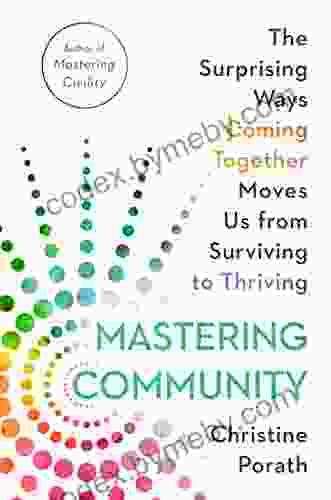
 Boris PasternakUnlock the Power of Connection: The Surprising Ways Coming Together Moves Us...
Boris PasternakUnlock the Power of Connection: The Surprising Ways Coming Together Moves Us... Billy PetersonFollow ·11.4k
Billy PetersonFollow ·11.4k Brett SimmonsFollow ·12.4k
Brett SimmonsFollow ·12.4k Salman RushdieFollow ·19.3k
Salman RushdieFollow ·19.3k Dean ButlerFollow ·11.9k
Dean ButlerFollow ·11.9k Greg CoxFollow ·2.6k
Greg CoxFollow ·2.6k Walt WhitmanFollow ·2.5k
Walt WhitmanFollow ·2.5k Chase SimmonsFollow ·11.4k
Chase SimmonsFollow ·11.4k Clarence MitchellFollow ·15.7k
Clarence MitchellFollow ·15.7k

 Rick Nelson
Rick NelsonThe Power of Positivity: 51 Motivational Quotes to...
In the tapestry of life, we encounter...

 Lee Simmons
Lee SimmonsThe Indian War of 1864: A Devastating Conflict in the...
The Indian War of 1864 was a brutal...
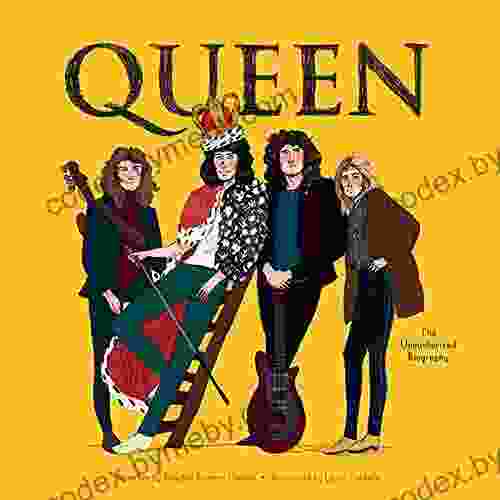
 Eddie Bell
Eddie BellQueen: The Unauthorized Biography: Unraveling the Secrets...
Prepare to delve into the captivating...

 Dion Reed
Dion ReedUnveiling the Imperfect Gems of Trauma and...
In the tapestry of...

 Desmond Foster
Desmond FosterThirty-Six Years in the Rockies: A Timeless Masterpiece...
A Journey Through Time and...
4.1 out of 5
| Language | : | English |
| File size | : | 1426 KB |
| Text-to-Speech | : | Enabled |
| Screen Reader | : | Supported |
| Enhanced typesetting | : | Enabled |
| Word Wise | : | Enabled |
| Print length | : | 434 pages |


